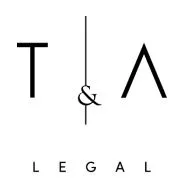- within Corporate/Commercial Law topic(s)
- in United States
- with readers working within the Technology, Media & Information and Law Firm industries
- within Corporate/Commercial Law topic(s)
- in United States
- within Corporate/Commercial Law, Tax, Government and Public Sector topic(s)
- with Finance and Tax Executives
- with readers working within the Accounting & Consultancy, Business & Consumer Services and Media & Information industries
Nigeria's technology and startup ecosystem is booming, with founders and investors striking high-stakes funding deals that require a solid understanding of laws applicable to startups and common fundraising mechanisms like equity financing, term sheets, and Simple Agreements for Future Equity (SAFEs). These tools not only shapes how capital flows into startups, but also the ownership structure, and manner in which deals are sealed, all within Nigeria's evolving legal landscape.
Equity Financing
Equity financing is the process by which startups raise money from investors in exchange for a percentage of ownership (equity) in the business. Instead of repaying a loan, the company gives up part of its ownership in return for capital that can be used for operations, product development, or expansion.
Investors who purchase equity hope to earn a return when the company becomes profitable, goes public, or gets acquired.
In Nigeria, equity financing is a common method used by startups, particularly those in the technology sector, to scale their operations. This funding model is often used in seed, Series A, and later rounds of financing.
It is common for startups seeking equity funding to obtain funding through:
i)individual investors, who are often times friends, family, and colleagues;
ii)angel investors, who are usually wealthy individuals or groups interested in providing assistance to businesses at the early stages of a business' development;
iii)venture capitalists who may be individuals or firms who make substantial investment in a business they believe has great growth potentials after they must have reviewed several relevant data. Venture capitalists may demand some substantial share of the startup's equity and certain rights with respect to the startup's decision-making process in exchange for providing the funds; or
iv)initial public offering; this basically entails issuing the startup's shares to the public and usually occurs at the later stage of the startup's development.
Why do Startups Choose Equity Financing?
No Repayment Obligation
Unlike debt financing, where startups must make regular repayments with interest, equity financing does not require repayment. Investors provide capital in exchange for ownership (equity) in the business, meaning the startup can focus on growth without worrying about loan repayments.
Reduced Financial Burden
Since there are no loan obligations, equity financing reduces financial strain on the startup. This is particularly beneficial for new businesses that are not yet generating steady revenue, as it prevents financial distress that could arise from debt obligations.
Access to Strategic Investors and Expertise
Equity investors, such as venture capitalists (VCs) and angel investors, often bring more than just money to the table. They offer industry expertise, mentorship, networking opportunities, and strategic guidance that can help a startup grow faster and avoid costly mistakes.
Greater Growth Potential
Startups that raise equity financing can invest in scaling their operations, hiring top talent, developing new products, and expanding into new markets without the constraints of repaying debt. This flexibility enables rapid growth and innovation.
Long-Term Stability
Equity financing aligns the interests of investors and founders toward long-term success. Unlike debt financing, which demands immediate repayments regardless of the business performance. Equity investors typically focus on long-term gains, such as an acquisition, IPO, or future funding rounds.
No Collateral Required
Traditional bank loans often require collateral (such as property, equipment, or personal guarantees), which many early-stage startups may not have. Equity financing eliminates the need for collateral, making it a more accessible funding option for innovative but asset-light startups.
Term Sheet and SAFEs
What is a Term Sheet?
A term sheet is a non-binding agreement that outlines the key terms and conditions under which an investor intends to make an investment in a startup. Think of it as the first formal step in negotiating an investment deal.
Although not legally enforceable on its own, a term sheet serves as a foundation for drafting legally binding investment agreements, such as shareholders' agreements and subscription agreements.
Term sheets are typically used when a startup is raising equity financing through priced rounds, such as seed or Series A rounds. They are necessary to clarify the expectations of both the founders and the investors before engaging in expensive and time-consuming due diligence and legal documentation.
When negotiating and drafting a term sheet, founders and investors should pay close attention to several key terms, including:
i)Valuation (pre-money and post-money), which is basically the value of the startup. Pre-money valuation states a startup's value before an investment is made, and post-money valuation states a startup's value after receiving investment. This is important to note as it helps both the startup and the investor to determine the percentage of the company they will receive after making investments, and also assess future returns;
ii)Investment amount, which is the total amount the investor is giving in exchange for equity;
iii)Equity Stake, specifying the percentage of the startup's shares that will be allotted to the investor in exchange for the investment;
iv)Investor Rights, which are rights (in addition to shareholding rights) which the investor will be entitled to as a result of the investment. Such investor rights include right to board seats, voting rights, and information rights;
v)Liquidation Preference, which determines the order of payouts in the event of a startup's exit (such as an acquisition) or liquidation. It ensures that preferred shareholders receive their investment (often with a multiple) before common shareholders, protecting investor downside risk.
vi)Vesting Schedule, is a mechanism that ensures founders earn their shares over time, typically through a vesting schedule. This ensures the founder's long-term commitment to the business;
vii)Anti-Dilution Clauses, are provisions that protect investors from dilution in future down rounds. This helps in preventing their ownership from being unfairly reduced;
viii)Exclusivity Clauses, which seek to prevent the startup from seeking other investment offers for a specified period of time.
What Are SAFEs?
A Simple Agreement for Future Equity (SAFE) is a relatively new investment instrument used by startups to raise early-stage capital quickly and efficiently.
Unlike traditional equity financing, a SAFE is not an immediate transfer of equity; instead, it is a contractual agreement in which an investor provides funds in exchange for a promise that the investment will convert into equity at a future date, usually based on the occurrence of an agreed-upon event like a subsequent priced funding round or upon a liquidity event like an acquisition.
SAFEs are most commonly used at the pre-seed or seed stage, when startups may not yet have enough traction to justify setting a valuation. The simplicity and flexibility of SAFEs make them an attractive option for both founders and investors in Nigeria's fast-moving startup ecosystem.
Key terms to look out for when negotiating and drafting SAFEs include:
i)Valuation Cap, which sets the maximum valuation at which the SAFE will convert into equity, giving the investor more favorable terms. It ensures investors receive shares at a lower price if the startup's value increases significantly.
ii)Discount Rate, providing a percentage discount on the future price per share.
iii)Conversion Triggers, which are specific events outlined in a SAFE agreement that activate the conversion of the investment into equity, typically during significant company milestones like a priced funding round, acquisition, or IPO. These triggers ensure that the investor's SAFE converts into equity at the right moment, based on predefined conditions agreed upon in the agreement.
iv)Most-Favored Nation (MFN) Clause, ensuring that the investor gets access to better terms if they are later offered to other investors. The Most-Favored Nation (MFN) Clause in a SAFE ensures that if a startup offers better investment terms to future investors, the original investor can opt into those improved terms. This protects early investors from missing out on more favourable conditions, such as lower valuation caps or better conversion rights (the investor's right to convert their investment into equity under predefined conditions), that may be offered in later funding rounds.
Term Sheets vs SAFEs: Key Differences
While both term sheets and SAFEs play critical roles in startup fundraising, they serve different purposes and have distinct characteristics.
A term sheet is a non-binding summary of key terms in an investment deal. It is typically used when negotiating an equity financing round, such as a seed or Series A round, and lays the groundwork for more detailed and binding agreements that follow. Term sheets tend to be more complex, requiring negotiation over multiple terms related to control, governance, and exit rights.
On the other hand, a SAFE is a legally binding contract that simplifies the fundraising process by postponing many of these complex negotiations. With a SAFE, the investor does not receive equity immediately but instead secures the right to convert their investment into equity at a later date, typically during a future priced round. SAFEs are much quicker and cheaper to execute compared to traditional equity financing through term sheets. They are ideal for early-stage fundraising, where speed and flexibility are essential, and valuation is difficult to establish.
In essence, term sheets are used to outline the terms of an immediate equity investment, whereas SAFEs are used to defer the actual issuance of equity until a later event triggers conversion.
Laws Guiding Startup Financing in Nigeria
Companies and Allied Matters Act (CAMA) 2020
The Companies and Allied Matters Act (CAMA) is the primary legislation regulating companies in Nigeria. For startups engaging in Equity Financing, Term Sheets, and SAFEs, CAMA governs:
i)Company incorporation and structure (Private Companies Limited by Shares – LTDs)
ii)Share capital issuance and allotment
iii)Shareholder rights and agreements
iv)Corporate governance obligations (such as board composition, directors' duties, etc.)
How it applies:
i)When a startup raises equity financing, they typically issue new shares, which must comply with CAMA's provisions on share issuance, allotment, and registration. The Corporate Affairs Commission (CAC) must also be notified of this new share structure as required by CAMA.
ii)CAMA permits the use of convertible instruments which are used to provide funding to startups with the option to convert the investment into equity at a later stage, typically when the company raises a priced funding round but requires proper documentation of share capital changes when conversions happen.
iii)Where board seats are issued to the investors, the startup is also required under CAMA to notify the CAC of the introduction of new directors.
Investments and Securities Act (ISA) 202525
The Investments and Securities Act (ISA) regulates capital market activities and securities offerings in Nigeria through the Securities and Exchange Commission (SEC).
How it applies:
The 2025 Investments and Securities Act (ISA) plays a vital role in protecting startup financing in Nigeria by regulating capital market activities and ensuring transparency and accountability. It requires startups offering equity or convertible instruments, such as SAFEs, to comply with Securities and Exchange Commission (SEC) rules, safeguarding both investors and entrepreneurs. This ensures that startups avoid unauthorised public offerings and that investors are protected through disclosure requirements that provide crucial financial information.
The Act also combats fraudulent schemes by imposing stiffer penalties for activities like insider trading and market manipulation, fostering a safer environment for startups to raise funds. By expanding the definition of securities to include virtual assets like cryptocurrencies, it ensures that startups using these technologies adhere to the same regulatory standards as traditional offerings.
Furthermore, the ISA requires SEC approval for mergers and acquisitions involving public companies, protecting minority investors in the case of acquisitions. The introduction of the Investor Protection Fund (IPF) adds an additional layer of security, compensating investors for losses due to fraud or firm insolvency, which bolsters confidence in startup investments.
Finance Act 2021 & Companies Income Tax Act (CITA)
The Finance Act 2021, alongside the Companies Income Tax Act (CITA), has introduced tax incentives that impact equity financing and investment in startups.
How it applies:
i)Exemptions and incentives: The Finance Act provides tax incentives for startups that qualify as Small or Medium Enterprises (SMEs), such as exemption from companies' income tax under specific conditions.
ii)Investor reliefs: There are potential tax incentives for investors who provide funding to startups, although the implementation and clarity of these provisions are still evolving.
Nigerian Startup Act (NSA) 2022
The Nigerian Startup Act, signed into law in 2022, specifically aims to regulate and encourage the growth of Nigeria's startup ecosystem.
How it applies:
i)The Act creates a startup label that grants qualified startups access to certain regulatory benefits, including tax incentives and streamlined registration processes.
ii)It supports fundraising activities by encouraging better investor protection and creating clearer structures for venture capital and private equity investments.
While the NSA doesn't specifically regulate Term Sheets or SAFEs, it provides an enabling environment for startup financing by:
i)recognising and supporting startups through incentives such as tax reliefs and regulatory support, making them more attractive to investors;
ii)encouraging venture capital investments by promoting public-private partnerships and fostering collaboration between startups and investors;
iii)simplifying business regulations by reducing bureaucratic hurdles that could discourage investment;
iv)providing government-backed funding opportunities
Securities and Exchange Commission (SEC) Rules on Crowdfunding (2021)
Although separate from traditional Equity Financing, the SEC's Crowdfunding Rules establish guidelines for raising capital through online crowdfunding portals.
How it applies:
i)Startups offering equity or debt instruments to the public through crowdfunding must comply with SEC registration and disclosure requirements.
ii)It sets limits on how much can be raised, who can invest, and how offers are made.
CONCLUSION
As Nigeria's tech and startup sectors mature, understanding the legal instruments that facilitate fundraising is increasingly important. Both term sheets and SAFEs offer valuable ways for startups to raise capital, but they come with different implications for founders and investors.
Founders must be diligent when negotiating either instrument, ensuring that they understand terms related to control, dilution, and investor protection. Engaging experienced legal counsel familiar with Nigerian startup law is essential to navigate these deals and protect the interests of the company in the long run.
If you're a startup founder gearing up for fundraising or an investor looking to back the next big idea in Nigeria, knowing how equity financing, term sheets and SAFEs work can make all the difference.
The content of this article is intended to provide a general guide to the subject matter. Specialist advice should be sought about your specific circumstances.
[View Source]



